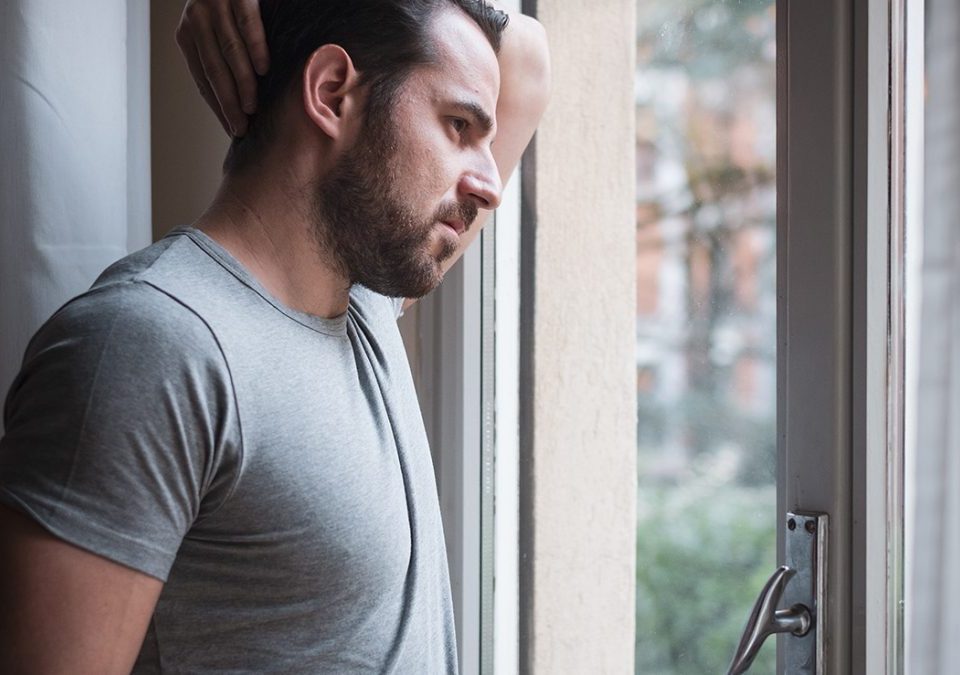Are Sleeping Pills Addictive?

Are Sleeping Pills Addictive?
It’s not surprising that more than a third of adults suffer from insomnia. But what is shocking is that many people never seek treatment. They leave the disorder undiagnosed and untreated, they simply accept the fact that it will be a lifelong struggle. Approximately 50 to 70 million Americans suffer from chronic sleep problems that can adversely affect their long-term health and interfere with their ability to function on a daily basis.
Health care professionals can prescribe prescription sleeping aids or sleeping pills to patients seeking help. In an average month, about 4% of adults ages 20 and older use prescription sleep aids, according to the Centers for Disease Control and Prevention. In addition, one in six adults with sleep disorders and one in eight adults with sleep problems reported using sleep aids, according to the study. As a result, many people are wondering if sleeping pills are safe and effective, or if they can be addictive and habit-forming.
Why Do People Take Sleeping Pills?
Insomnia, as defined by the American Academy of Sleep Medicine (AASM), is characterized by a persistent difficulty initiating, sustaining, consolidating, or enhancing sleep. Short-term insomnia refers to sleep problems that last less than three months but occur at least three times a week. Chronic insomnia refers to sleep problems that last at least three months but do not last longer than three months.
In addition, people can experience insomnia in a variety of ways. Some people can fall asleep but have difficulty staying asleep, which is called sleep maintenance insomnia, while others have difficulty falling asleep, which is known as sleep-onset insomnia. Both types of insomnia can affect a person.
Insomnia is predominantly caused by hyperarousal, which can be caused by mental or physical challenges, or a combination of the two. People who have hyperarousal have difficulty calming themselves down or lowering their heart rate and breathing. Apart from hyperarousal, several factors can affect someone's sleep, including environmental, physiological, and psychological factors.
How Do Sleeping Pills Work?
Prescription sleeping pills can usually be helpful for people with sleep issues. Unfortunately, for people suffering from insomnia, sleeping pills do not usually provide much assistance, and can also make matters worse. Some medications help people fall asleep more easily or stay asleep longer, while others provide both remedies. Despite this, all prescription medications have side effects. Several medications are available to treat insomnia, including:
- Antidepressants
- Benzodiazepines
- Doxepine (Silenor)
- Eszopiclone (Lunesta)
- Lemborexant (Dayvigo)
- Ramelteon (Rozerem)
- Suvorexant (Belsomra)
- Zaleplon (Sonata)
- Zolpidem (Ambien, Edluar, Intermezzo)
- Over-the-counter sleep aids
As a result, newer sleeping pills like eszopiclone, zaleplon, and zolpidem seem less likely to cause side effects. They are effective because they target only specific GABA receptors in the brain. The GABA receptors affect a person's level of alertness and relaxation. These drugs target a specific receptor that is primarily involved in promoting sleep.
Some natural options, such as melatonin and valerian, offer help for some people to encourage better sleep. Melatonin is a hormone that the body naturally produces to promote sleep. It may assist the body in entering a state that promotes sleep. In addition to helping people sleep more soundly, Valerian is an herb that has been shown to reduce the time it takes to fall asleep.
Sleeping Pill Side Effects
Since sleeping pills interfere with normal breathing, people with asthma or other breathing conditions like emphysema or chronic obstructive pulmonary disease (COPD) may not be able to take them. Benzodiazepines, barbiturates, and other hypnotics fall into the category of sedative hypnotics. Although benzodiazepines can help people fall asleep, they can be addictive if used long-term. They can also affect memory and attention. As a type of hypnotic, barbiturates are commonly used for anesthesia and can also cause fatal overdoses. You should also be aware of the following possible side effects of sleeping pills:
- Burning or tingling in the hands, arms, feet or legs
- Changes in appetite
- Constipation
- Diarrhea
- Balance problems
- Dizziness
- Daytime drowsiness
- Dry mouth or throat
- Gas
- Headache
- Heartburn
- Impairment the next day
- Mental slowing or problems with attention or memory
- Stomach pain or tenderness
- Uncontrollable shaking of a part of the body
- Unusual dreams
- Weakness
When taking sleep medications, individuals may find themselves experiencing the phenomenon of parasomnia. This disorder can be both disruptive and dangerous, as it causes people to carry out activities while in a state of sleep such as sleepwalking, sleep eating or even driving. Though they appear awake, their brains are not entirely conscious, leaving them with no recollection of what they did upon awaking.
Sleeping Pill Addiction
Physical addiction is uncommon with sleeping pills, but psychological addiction is quite common. This means that the person believes they will not be able to sleep without the drug. Sleeping pills can cause a number of problems, including:
- Having to steadily increasing the dosage
- Needing to take sleeping pills every night
- Wanting to quit but unable to
- Looking around for new doctors to write a prescription (“doctor shopping”)
- Avoiding social and professional obligations where they cannot take the drug.
How to Stop Taking Sleeping Pills
Individuals can take sleeping pills for a short period of time without developing a dependence or addiction. A person can avoid potential withdrawal symptoms or relapses by tapering off sleeping pills over several weeks gradually. The most common way to do this is to reduce the dosage. It may take up to four months to taper off a habit-forming drug. You should consult a doctor before tapering off one.
Individuals may be recommended to seek treatment at a professional addiction treatment program in more severe cases. The process generally involves detoxing the individual from the drug, followed by behavioral therapy and peer support. A number of studies have shown that psychological support is particularly effective, with cognitive behavioral therapy (CBT) being the most effective. Always follow a doctor's instructions regarding sleeping pills in order to avoid problems. Sleep medications should not be taken daily, doses should never be increased beyond what the doctor recommends, or combinations should never be used.
Sleeping Pill Withdrawal
Sleeping pill withdrawal symptoms are usually not life-threatening, but they can be very uncomfortable. The intensity will vary depending on the individual, the dosage and the duration of use.
A person detoxing from sleeping pills can have a dangerous reaction. Because of this, most experts recommend that someone undergo a medically supervised detox under the care of a healthcare professional. This allows a medical team to monitor vital signs and assist in the event of complications.
Alternatives To Taking Medication
There are a variety of alternative treatment options that can help people who suffer from insomnia. Some of these options include:
- Diet and exercise
- Mental conditioning
- Lifestyle changes
- Acupuncture*
- Guided imagery
- Yoga
- Hypnosis
- Biofeedback
- Aromatherapy
- Relaxation
- Massage
*A small number of studies have shown that acupuncture can relieve insomnia, but more research is needed.
Meditation and relaxation techniques have been shown to be effective in treating insomnia. These techniques range from relaxing the muscles through progressive muscle relaxation and biofeedback to quieting the mind through meditation. These techniques must, however, be learned. Before individuals master these steps to the point that they can ease their insomnia, it may take several weeks for them to master them.
It seems that regular exercise can improve sleep for people of all ages and it doesn't have to be strenuous to be effective. Even moderate yoga or tai chi can be beneficial. As long as exercise occurs three to four hours before bedtime, it is always recommended to incorporate more physical activity.
Finally, if a person finds themselves lying in bed worrying, they should establish a time before bed, to review their day and plan for the next. If they make a list of tasks for the next day or simply write down worries or anxiety in a journal, they may be able to eliminate any worries that interfere with sleep. The inability to fall asleep or stay asleep can result in major difficulties in everyday life. If you are concerned that your use of sleep-related medications is causing harm to yourself or others, call Redemption Addiction Treatment Center at (855) 712-9679 and seek help today!




